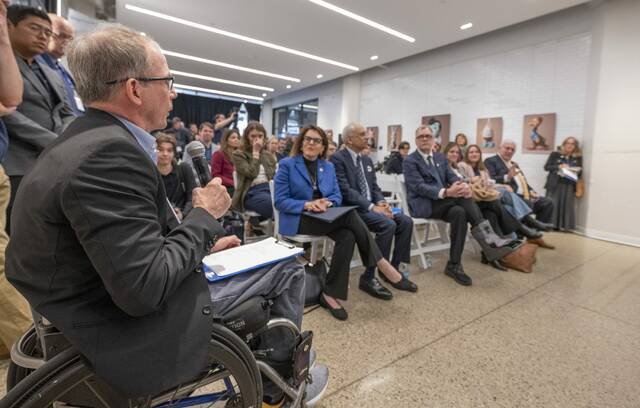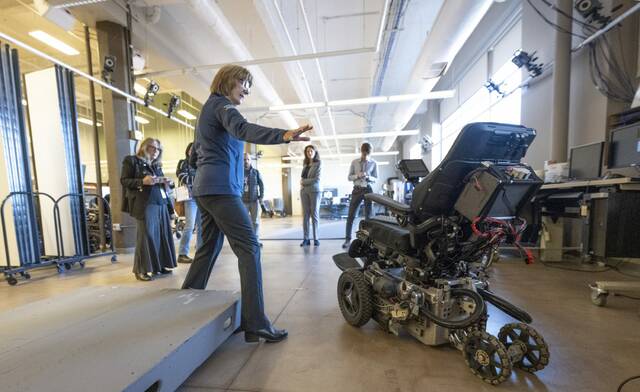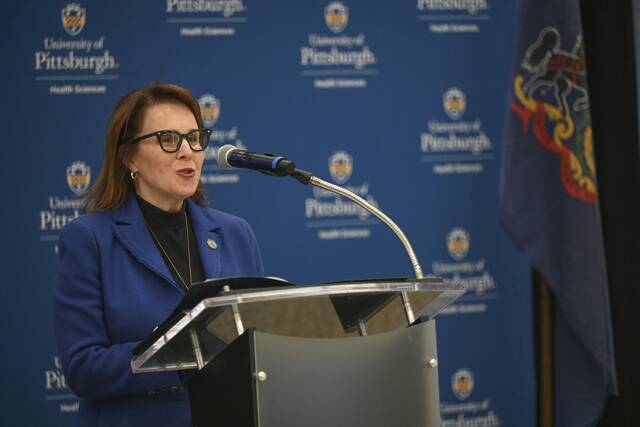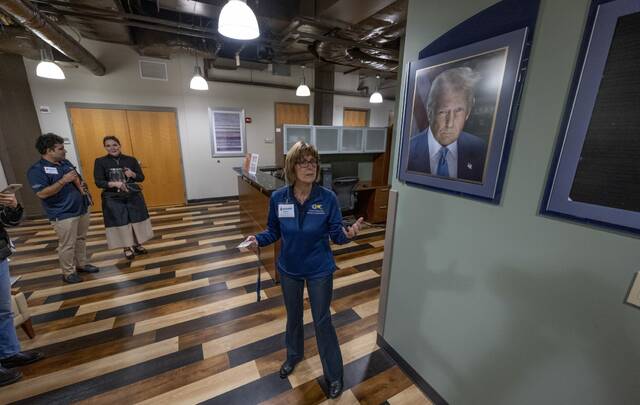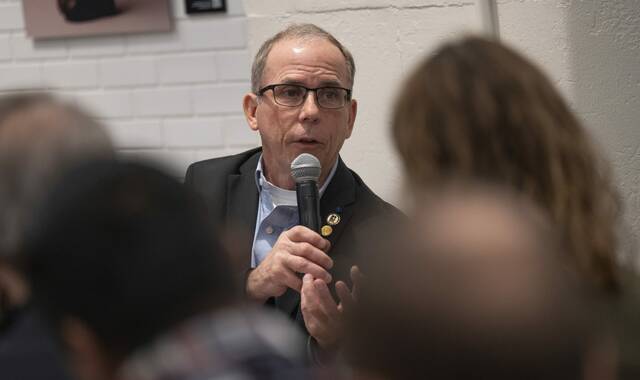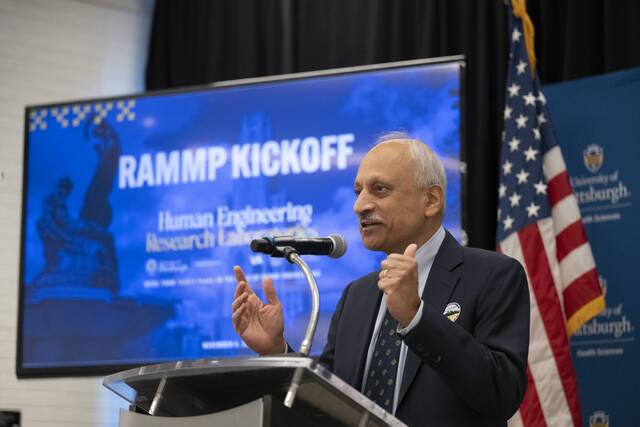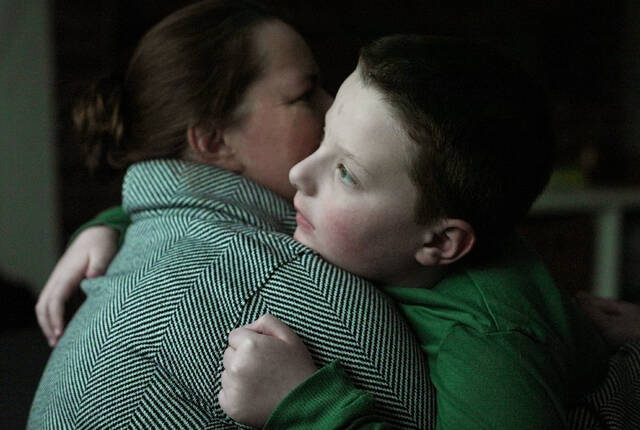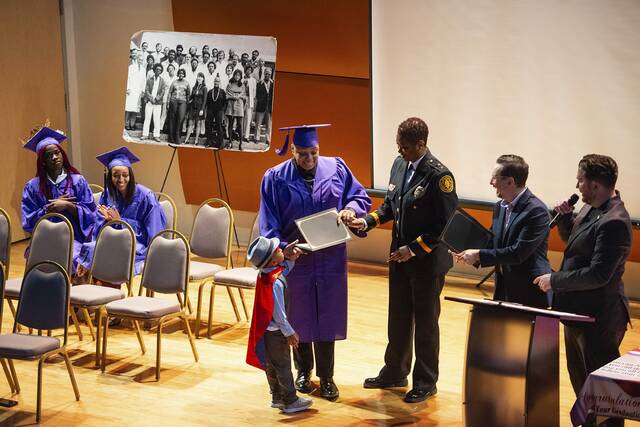A laboratory in Pittsburgh’s Bakery Square is poised to make the next breakthrough in wheelchairs, a mostly stagnant industry with huge quality of life implications for millions of disabled Americans.
Researchers at the Human Engineering Research Laboratories, a collaboration between the University of Pittsburgh and the U.S. Department of Veterans Affairs, were recently awarded about $42 million in federal funds to design an electric wheelchair with autonomous stabilizers and a robotic arm.
These technologies already exist, in part, because of the lab’s past work. The key innovation of this new project, called the Robotic Assisted Mobility and Manipulation Platform, will be integrating them into a single system.
“It’s never been done before,” Rory Cooper, founding director of the Human Engineering Research Laboratories and a Pitt professor of rehabilitation engineering, said during a press conference Tuesday at Bakery Square.
The work is personal for Cooper, who is one of the country’s estimated 5.5 million wheelchair users. Better mobility and object manipulation could make tasks that are routine for most people — Cooper used the example of getting milk from the refrigerator — simple for those in wheelchairs, too.
“This has been a dream of ours for a long time, so we can have the same mobility that many of you in the room have and the same ability to manipulate objects that many of you in the room have, with the same level of efficiency,” Cooper said.
Limitations in sensors, batteries and motors have put that dream out of reach, according to Cooper. Computing power was another barrier.
Leaps in artificial intelligence will also enable researchers to virtually test how their designs perform in different scenarios before building them in real life.
Cooper’s team of 70 researchers, therapists and machinists are on an ambitious five-year timeline to design, build and test the new wheelchair. An educational version would come first, followed by a commercial one.
Several other universities are in on the project, including Carnegie Mellon University, whose researchers are tasked with integrating the robotic arm’s software into the wheelchair.
Artificial intelligence chipmaker Nvidia and Amazon’s cloud computing division are also involved in the project.
The goal for Cooper is not just to improve the traditional power wheelchair, but create a new standard in the space.
“Really, what we need is a transformational step where we discard the old technology and come up with an entirely new technology,” he said.
Inside the lab
The team at the Human Engineering Research Laboratories is quite comfortable on the cutting edge of wheelchair technology.
The lab’s offices, separated by wide hallways to accommodate people in wheelchairs, give way to an even more spacious testing area lined with the fruits of its 31 years of research.
There are wheelchairs to play tennis, navigate shallow water and transfer people into their beds with minimal caregiver assistance.
Many existing wheelchairs struggle with uneven terrain, according to Cooper’s wife, Rosemarie, who is the lab’s associate director of stakeholder engagement. Even a ramp leading into a business can cause a wheelchair to tip onto its side.
Each year, more than 100,000 emergency room visits in the U.S. are related to wheelchair tips and falls.
The lab is also responsible for seemingly minor, but still important improvements like comfortable hand grips to propel wheelchairs forward and a new shock absorber design.
“Our technology for wheelchairs is stuck in the 80s and 90s,” Rosemarie Cooper said. “End users, they should be sitting in technologies of 2025.”


